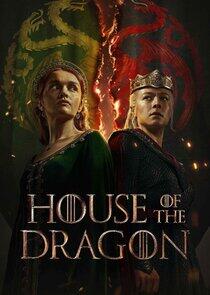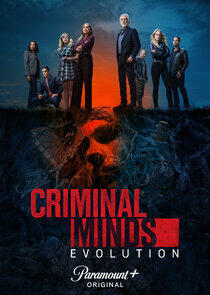Revolution and Romance: Musical Masters of the 19th Century - Season 1

Season 1

Episodes

We Can Be Heroes
In the first programme, Suzy Klein tells the story of a creative outpouring unrivalled before or since - the 19th century witnessed the emergence of composers such as Beethoven, Schubert, Berlioz, Chopin, Wagner, Verdi and Liszt, just to name a few of the stellar array whose genius we venerate to this day.
As the aristocracy weakened following the French Revolution, the industrial revolution created new wealth and the middle classes flourished, Suzy shows how it was possible for composers and performers to become the superstars of their age, no longer the servants of kings and princes.
Masters like Paganini and Liszt were idolised, commanded immense fees and had a following as adoring as any of the rock stars and singers of today. Composers tore up the rulebooks, embraced the spirit of Romanticism and poured out their souls in their bold and experimental work. And, freed from the chains of aristocratic patronage, they became entrepreneurs too, organising and profiting from their concerts, and winning unprecedented wealth, fame and status.
But with commercial success came a very modern backlash - artistic credibility v X Factor-style fame. Which would win out? Or could one coexist with the other? As music gained increasing power and influence as the art form of the 19th century, composers started to believe that they could change the world... and remarkably, they really did.

Talkin 'Bout a Revolution
In the 19th century, as Suzy Klein shows in the second episode of the series, music wasn't just a backdrop to life, easing pain and enhancing pleasure. It became a revolutionary force that could - and did - change the world.
As the impact of the violence and turmoil unleashed in the French Revolution reverberated around Europe, it was music that most viscerally carried the message that the people could stand up to kings and emperors. In France during the revolution, La Marseillaise emerged as a rallying cry - sung by the mob as they stormed the royal palace. When Napoleon imposed his grip on the nation it became an anthem of subversion, along with countless songs that pilloried the return to autocracy and the crushing of freedom.
But it was not just on the streets, as Suzy shows, that revolutionary fervour was stoked up. Even opera, intended by the authorities to reinforce the status quo, became politically potent, fanning the flames of nationalism and revolution throughout Europe. One French opera actually helped trigger a revolution when it was performed in Belgium in 1830.
Suzy shows how music came to express not only revolutionary fervour, but also the growing force of nationalism that was sweeping Europe. She discovers how Chopin's music, beneath its lyrical surface, expressed more powerfully than words the defiant spirit of the Polish people suffering under the oppression of a foreign power. And she explores how Carl Weber's lovely work Der Freischutz articulated the longings for nationhood of the Germans and inspired Richard Wagner to attempt the transformation of the human spirit through his work.
But it was Italian opera composer Giuseppe Verdi whose music had the most profound political impact in the 19th century. Suzy travels to Parma, Verdi's home town, to meet the disciples who keep his flame alive to this day, venerating the man whose music embodied the fight for freedom and whose very name came to symbolise Italy's fight for nationhood.

Party Like It's 1899
The final programme examines how the music of the 19th century was able to flourish through economic and social change, as well as a technological revolution.
It will show how advances in communication encouraged global travel, offering Western composers exciting new inspiration for their music. The episode also demonstrates how manufacturing developments in the century allowed musical innovation, and Klein makes her first recording on a vintage phonograph.
Recently Updated Shows
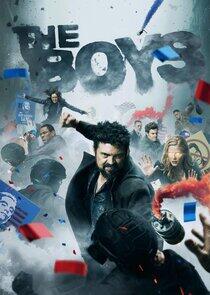
The Boys
In a world where superheroes embrace the darker side of their massive celebrity and fame, The Boys centres on a group of vigilantes known informally as "The Boys," who set out to take down corrupt superheroes with no more than blue collar grit and a willingness to fight dirty.
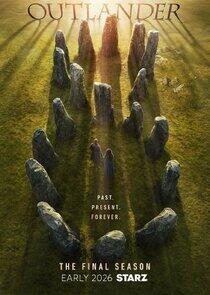
Outlander
Outlander follows the story of Claire Randall, a married combat nurse from 1945 who is mysteriously swept back in time to 1743, where she is immediately thrown into an unknown world where her life is threatened. When she is forced to marry Jamie, a chivalrous and romantic young Scottish warrior, a passionate affair is ignited that tears Claire's heart between two vastly different men in two irreconcilable lives.
The Outlander series, adapted from Diana Gabaldon's international best-selling books, spans the genres of romance, science fiction, history and adventure into one epic tale.
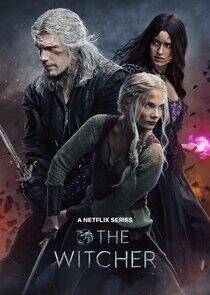
The Witcher
Based on the best-selling fantasy series, The Witcher is an epic tale of fate and family. Geralt of Rivia, a solitary monster hunter, struggles to find his place in a world where people often prove more wicked than beasts. But when destiny hurtles him toward a powerful sorceress, and a young princess with a dangerous secret, the three must learn to navigate the increasingly volatile Continent together.
